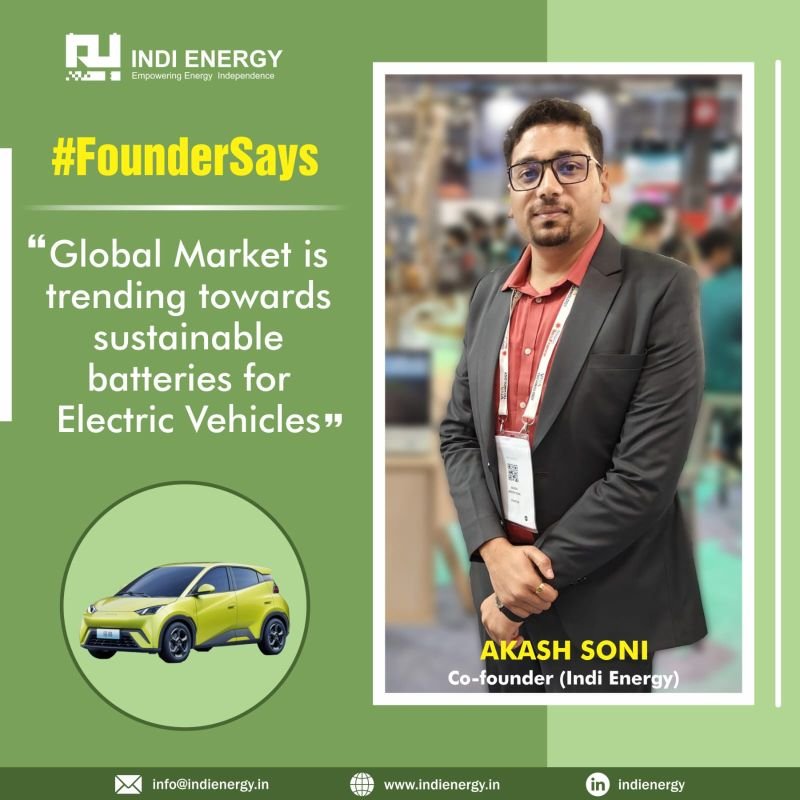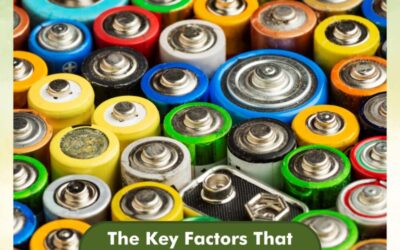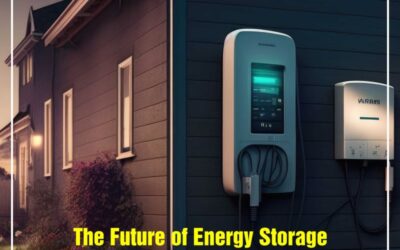
Indi Energy is back with the fourth edition of “Sodium ion Batteries Technology Updates.”
Indi Energy, an indigenous entity from IIT Roorkee, is rapidly gaining recognition for its innovative sodium-ion batteries. With the world counting the moments until sodium-ion batteries are available on the market, we at Indi Energy are getting closer to mass production of our sodium-ion batteries.
But that’s not the topic of discussion this time around because, in this issue of sodium-ion battery technology updates, we have a surprise for our readers. Mr. Akash Soni, Indi Energy’s co-founder and CEO, has taken time out to share a few thought-proving words on the global shift towards sustainable batteries for electric vehicles. Let’s dive straight into it.
The Sodium-Ion Revolution: A Shift from Lithium
“In the rush to fuel our technological advancements, did we hastily adopt lithium-ion battery technology as the cornerstone of progress?” This is a topic that continues to divide technical societies as lithium batteries, despite their use of scarce resources, have undeniably pushed us into the era of eclectic mobility. This is why the prospect of replacing them, while critical, poses substantial challenges. However, the evolving battery market has a compelling sustainable alternative, i.e., sodium ion batteries.
According to the 2028 forecast, the combined demand for electric vehicles in the USA and China will surpass that of Europe and the rest of the world. These regional variations must be studied because they will enable strategic market entry.
With governments worldwide increasingly championing sustainable technologies, they are offering incentives and implementing regulations to curb carbon emissions. Steps such as these are favorable to the sodium-ion battery market, fostering growth and development.
Earlier in the year, in April, BYD launched their sub-4 meter car called Seagull, which became the first car in the world to have a sodium-ion battery pack. This groundbreaking move sparked interest from numerous other car manufacturers, signaling a collective intent to shift towards this promising technology.
The sodium-ion battery market was valued at USD 868 million in 2022 and has been projected to reach a whopping 4610 million by 2030, growing at a CAGR of 23.21% from 2024 to 2030. Much of this demand is going to come from the mobility sector.
We at Indi Energy are enthusiastic about the remarkable potential of sodium ion batteries and their immense impact on electric vehicles. We are already exploring global market trends to analyze the impact of battery technology on electric mobility’s future. But sodium-ion batteries will not only be confined to revolutionizing mobility alone; they are set to complement the ongoing revolution in consumer electronics and address sustainable energy storage as well. With abundant sodium resources making up 2.7% of Earth’s crust as compared to lithium’s meager 0.002%, this abundance positions sodium-ion batteries as the sustainable and resource-efficient choice for the future!
Green Corridor Project Approved in Ladakh
CCEA has recently approved an INR 20,000 crore, 13 GW green energy corridor project in Ladakh, India. This is a brilliant development and the perfect project to showcase the prowess of Indi Energy’s sodium ion batteries.

Not only can our batteries serve as energy storage for the surplus energy generated by the 13 Giga Watt renewable energy project, but they also aid in the seamless integration of renewable energy sources by providing a reliable and efficient means of storing and dispatching power as and when required, enhancing the overall stability and efficacy of the grid.
Indi Energy’s customizable sodium-ion battery packs can also assist in peak shaving by discharging stored energy during high-demand periods, reducing the strain on the grid and avoiding the need for additional power generation. Given Ladakh’s geographical and climatic challenges, our sodium-ion batteries can be used to provide a reliable power supply in even the remotest and off-grid areas, thus ensuring continuous electricity access. And how can we forget the local economic benefits? The implementation of Indi Energy’s sodium-ion battery technology, where every single component is made in India, will lead to more job opportunities such as manufacturing, installation, and maintenance of the battery systems.
In a world starving for sustainable energy solutions, Indi Energy is a spark of innovation. We are a team driven by a vision and fuelled by the possibility of a greener future harnessed right from the soil of India. The countdown has just begun for the dawn of a new energy era. Stay tuned and follow us on both LinkedIn and Facebook as we unveil the power to shape a brighter, cleaner tomorrow. For more information or queries, please reach out to us by filling out the form on this page.






